Manchurian Walnut Wood
- September 11, 2023
- 0 comment
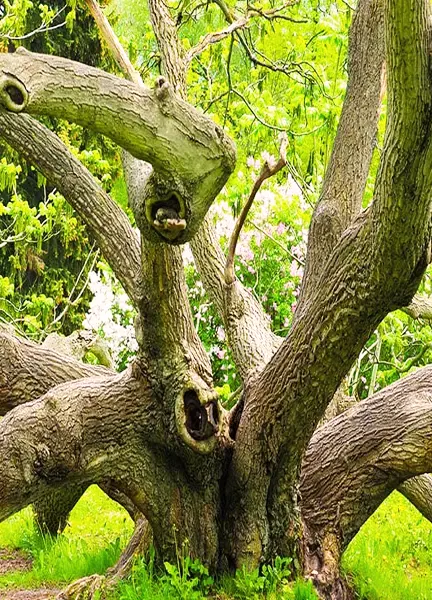
Manchurian Walnut Wood, scientifically known as Juglans mandshurica, is a hardwood of exceptional quality and versatility, originating from the Manchurian region of China, Korea, and Russia. This exquisite wood possesses remarkable properties and an inherent aesthetic allure that has made it a cornerstone in numerous aspects of human life. Its fine and even grain, along with its smooth texture, renders it a preferred choice for crafting exquisite furniture pieces, bringing an air of elegance to interiors. Beyond the realm of furniture, it plays a pivotal role in construction due to its strength and durability, contributing to structural components and architectural features.
Texture
Manchurian Walnut Wood boasts a luxurious and smooth texture that is highly prized in woodworking. Its fine and even grain pattern adds to its tactile appeal, creating surfaces that are not only pleasing to the eye but also a joy to touch. This fine grain can vary from straight to slightly wavy, imparting character and visual interest to the finished products, whether it’s a polished table or a meticulously crafted cabinet.

Bark
The bark of the Manchurian Walnut tree serves as a protective barrier for the valuable wood beneath. Typically grayish-brown and moderately thick, the bark’s primary function is to shield the tree from environmental stressors, insects, and disease. While it’s not commonly used in woodworking itself, its role in preserving the quality of the wood cannot be overstated, ensuring that the Manchurian Walnut’s prized attributes remain intact.
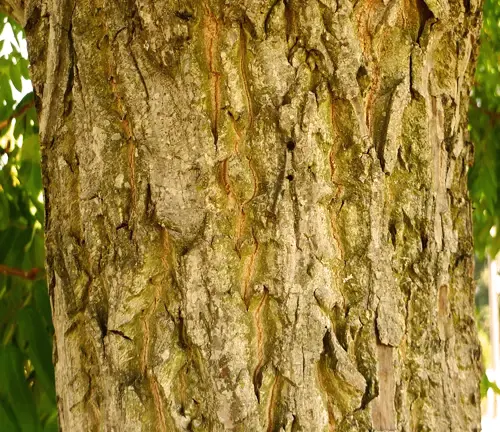
Furniture
Manchurian Walnut Wood is a celebrated choice in the world of furniture making due to its numerous exceptional qualities. Its rich, dark brown color, combined with its fine grain and smooth texture, makes it an ideal material for crafting exquisite and enduring furniture pieces. From dining tables that exude elegance to intricately carved chairs that provide both comfort and aesthetics, this wood elevates the interior of any space.
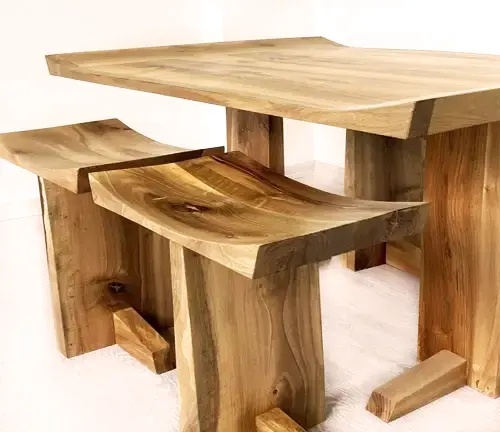
Weapon
In a historical context, Manchurian Walnut Wood has been a favored material for crafting stocks for firearms and other weapons. Its inherent strength and resilience make it a top choice for this purpose, ensuring that weapons are not only durable but also reliable, withstanding the test of time.
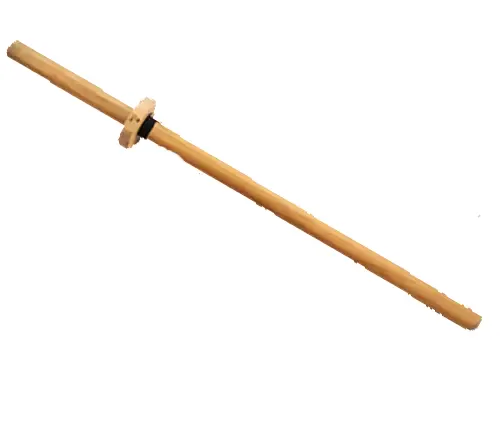
Firewood
Beyond its aesthetic and structural merits, Manchurian Walnut Wood also serves as a source of high-quality firewood. Its dense, hardwood nature allows it to burn slowly and efficiently, producing a steady source of heat. This makes it a valuable resource for heating homes and providing warmth during the colder months.

Construction
In the construction industry, Manchurian Walnut Wood finds versatile use. Its exceptional strength and durability make it a dependable choice for a wide range of applications, from framing to flooring. Additionally, its rich color and fine grain can enhance the visual appeal of various architectural features, making it a favorite among architects and builders alike.
Plywood
Manchurian Walnut Wood is utilized in the manufacture of plywood sheets, which are renowned for their stability and resistance to warping. These plywood sheets find applications in cabinetry, interior paneling, and various architectural elements, providing both structural integrity and aesthetic appeal to these applications.
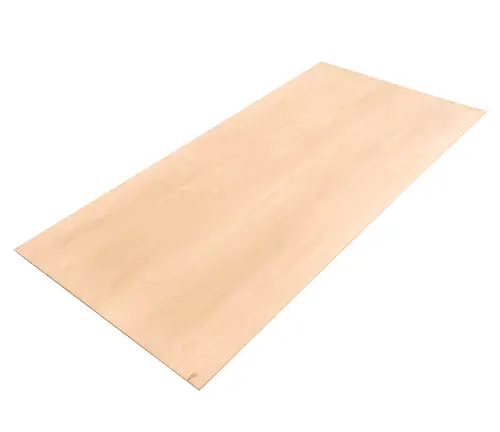
Board
Manchurian Walnut Wood boards are commonly employed for crafting smaller items such as shelves, cutting boards, and decorative accents. The wood’s attractive appearance, characterized by its rich, dark hue and fine grain, makes it a sought-after material for creating visually striking and functional pieces.
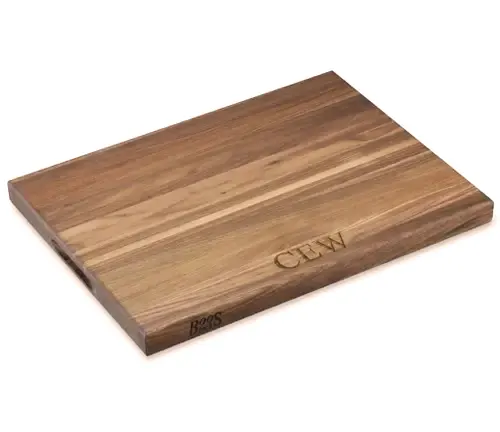
Railroad Cross Ties
In the realm of transportation and infrastructure, Manchurian Walnut Wood is occasionally employed for railroad cross ties due to its strength and natural resistance to decay. These ties play a pivotal role in providing stability and support to railroads, ensuring the safe and efficient transportation of goods and passengers.

Pallets
Pallets made from Manchurian Walnut Wood are highly regarded for their durability and sturdiness. These pallets serve as essential tools in the logistics and transportation industry, ensuring the safe storage and transportation of a wide range of goods, and safeguarding valuable cargo throughout the supply chain.
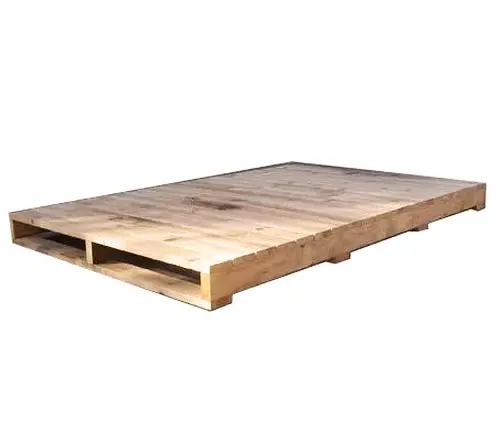
Cants
Manchurian Walnut Wood cants are semi-finished wood pieces cut to precise dimensions for further processing. They play a crucial role in various woodworking industries, serving as an intermediate product that can be transformed into a multitude of end products, from furniture components to architectural elements.
Fencing
Due to its natural resistance to decay and pests, Manchurian Walnut Wood is an excellent choice for crafting fences and outdoor structures. Beyond providing privacy and security, Manchurian Walnut Wood fencing enhances the aesthetic appeal of outdoor spaces, creating a harmonious blend of functionality and beauty.
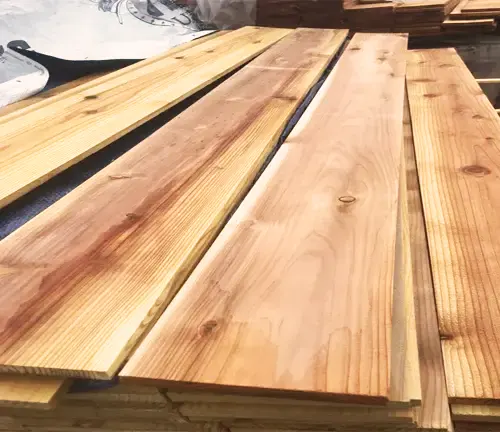
Wooden Crates
Manchurian Walnut Wood is a preferred material for constructing sturdy wooden crates, designed to package and ship fragile or valuable items. These crates offer superior protection and durability, ensuring that their contents arrive at their destination in pristine condition, regardless of the rigors of transit.
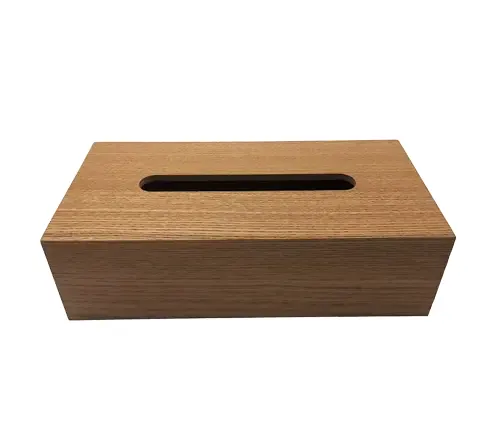
Wood Decking
When used for outdoor decking, Manchurian Walnut Wood offers an appealing alternative to traditional decking materials. Its rich color and natural resistance to decay make it a low-maintenance choice for creating beautiful outdoor living spaces, where the wood’s elegant appearance complements the natural surroundings.
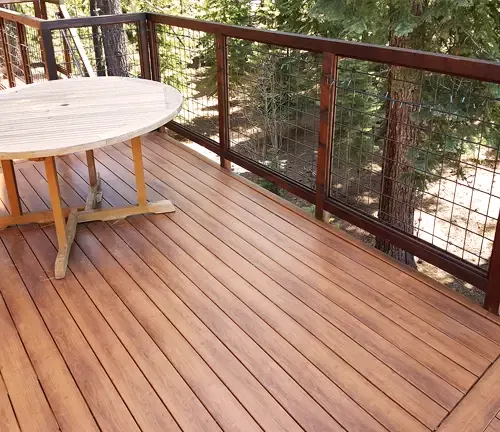
Shiplap
Shiplap made from Manchurian Walnut Wood introduces rustic charm to interior walls and ceilings. Its uniform, interlocking profile not only creates clean lines but also imparts a cozy ambiance in homes and commercial spaces, making it a favored choice for those seeking a distinctive aesthetic.
Live Edge Siding
For those with a penchant for a truly unique and natural aesthetic, Manchurian Walnut Wood is used for live edge siding. This style preserves the wood’s natural edges, creating structures that possess a one-of-a-kind appearance, forging a deep connection with the outdoors and nature.
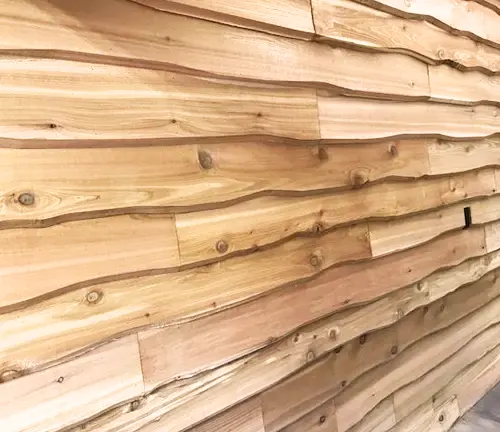
Slabs
Manchurian Walnut Wood slabs are highly sought after for crafting custom tables, countertops, and other statement pieces. These slabs showcase the wood’s intricate grain patterns and rich color, creating stunning focal points in any space, whether it’s a stylish dining table or an elegant kitchen countertop.
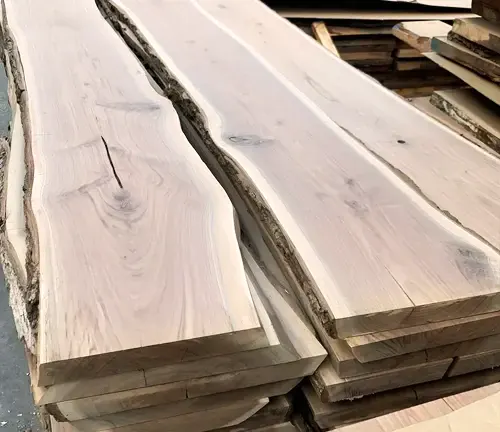
Beams
Manchurian Walnut Wood beams serve both structural and decorative purposes. Whether they are supporting a roof or adding character to an architectural design, these beams combine the qualities of strength and aesthetics in perfect harmony, making them indispensable elements in various construction and renovation projects.
You can check our Lumber Article for an even more comprehensive look into the world of wood and its countless applications. There’s a wealth of knowledge waiting for you there, so dive right in and embark on your next enlightening read. Happy exploring
Frequently Asked Questions (FAQs)
- What is Manchurian Walnut Wood, and where is it commonly found?
Manchurian Walnut Wood, scientifically known as Juglans mandshurica, is a high-quality hardwood originating from the Manchurian region of China, as well as parts of Korea and Russia. It is celebrated for its exceptional properties and aesthetic appeal. - What makes Manchurian Walnut Wood unique compared to other types of wood?
Manchurian Walnut Wood is distinguished by its fine and even grain pattern, which imparts a smooth and luxurious texture. Its rich, dark brown color, along with its resistance to decay and pests, sets it apart as an ideal choice for various woodworking applications. - What are the primary applications of Manchurian Walnut Wood?
Manchurian Walnut Wood is incredibly versatile and is used in various applications, including furniture making, construction, plywood production, crafting boards, creating railroad cross ties, manufacturing pallets, and many more. - Is Manchurian Walnut Wood environmentally sustainable?
Sustainability depends on responsible forestry practices. When sourced from sustainably managed forests, Manchurian Walnut Wood can be considered environmentally friendly. It’s essential to verify the source and certification of the wood to ensure responsible harvesting. - How does Manchurian Walnut Wood compare to other hardwoods in terms of durability and strength?
Manchurian Walnut Wood is known for its durability and strength, making it suitable for structural components in construction and even for crafting firearm stocks. Its dense, hardwood nature contributes to its longevity. - Can Manchurian Walnut Wood be used for both indoor and outdoor applications?
Yes, Manchurian Walnut Wood is versatile enough to be used in both indoor and outdoor projects. Its natural resistance to decay and pests makes it an excellent choice for outdoor structures and decking, while its elegant appearance enhances indoor spaces with furniture and decorative items.
In conclusion, Manchurian Walnut Wood stands as a testament to nature’s artistry and human craftsmanship. With its fine grain, rich color, and exceptional versatility, it weaves its timeless elegance into our lives, whether through the fine details of furniture, the structural strength of construction, or the beauty of outdoor decking. As a resource both sustainable and resilient, it bridges the gap between the natural world and our designed environments, leaving an indelible mark of beauty, durability, and utility. Manchurian Walnut Wood: Where nature’s grace meets human ingenuity.


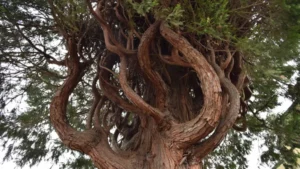
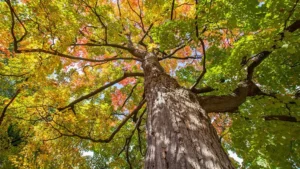
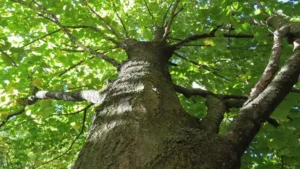


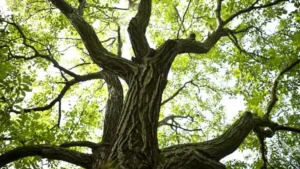
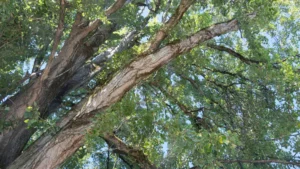
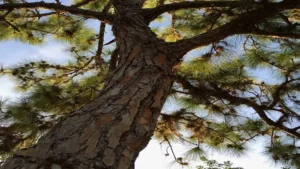
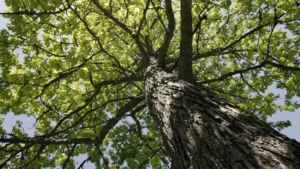


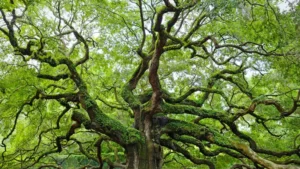
Leave your comment